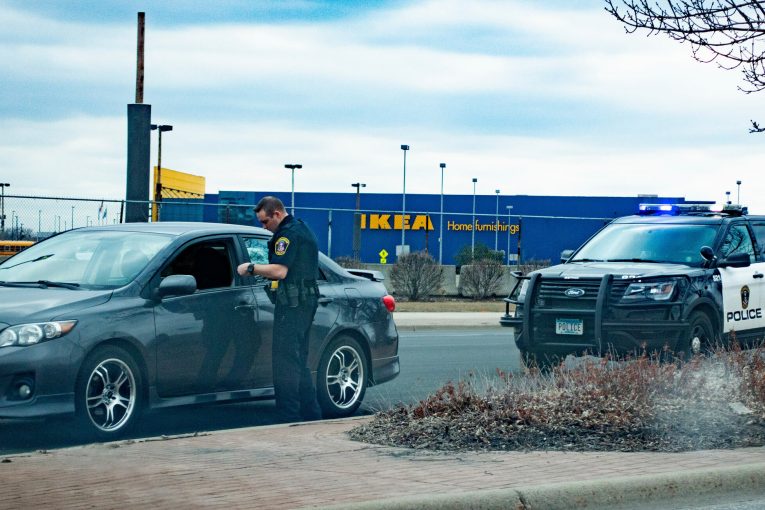

By Sam McCann
Police killed Philando Castile in July 2016 after pulling him over for driving with a broken taillight. All told, police in the Minneapolis-St. Paul region had pulled Castile over 49 times in the years before killing him, often for minor violations that had nothing to do with keeping roads safe.
That fact informed Ramsey County District Attorney John Choi’s decision to stop prosecuting felony cases that arise from traffic stops for minor equipment and registration infractions. Choi, a Vera Reshaping Prosecution partner whose office operates in the Twin Cities area of Minnesota, prosecuted Jeronimo Yanez, the St. Anthony Police Department officer who killed Castile. Although Yanez was acquitted, Choi was determined to curb the kinds of  constant, low-level stops that preceded Castile’s killing.
constant, low-level stops that preceded Castile’s killing.
Data released this week shows Ramsey County’s new policy has done exactly that. Choi, with assistance from Vera, announced his policy change in September 2021 and worked with local law enforcement to change traffic stop patterns. Since then, non-public safety traffic stops fell by 86 percent among police departments that worked with Choi’s office. Black drivers experienced the largest decrease in these kinds of traffic stops, seeing a 66 percent drop in the number of stops per capita.
The policy change also reduced the amount of time police spent making traffic stops that had nothing to do with traffic safety. Those interactions represented 25 percent of all traffic stops prior to Choi’s policy change but fell to just 5 percent after September 2021.
Critically, these changes came at no cost to public safety. While police sometimes claim that stopping drivers allows them to search for guns and drugs, keeping weapons off the streets, data shows that searches that begin with traffic stops seldom yield contraband. In Ramsey County specifically, the number of firearms confiscated remained stable even after the policy change.
“We’ve heard from our community that the changes are working; that we’re reducing unnecessary traffic stops while still keeping our neighbors safe. It’s important to see that borne out in numbers,” said Choi. “Ramsey County is committed to being a national leader on reducing non-public safety traffic stops and tackling racial inequities head on. I hope that through our example of working together with impacted communities and police can lead to safer communities for all across our nation.”
The newly released data also offers a natural experiment: while Choi worked with a number of police departments in Ramsey County to implement his changes, not all local departments cooperated. The jurisdictions that did not implement changes in traffic stop practices saw a greater increase in violent crime than jurisdictions that implemented Choi’s policy. There’s no evidence here that spending enormous amounts of public resources on low-level traffic stops actually builds safety.
The success of Ramsey County’s policy is part of a growing body of evidence showing that eliminating low-level traffic stops is just and effective. Every year, police make more than 20 million traffic stops, but many of these involve low-level allegations and have little to no benefit to safety. Only about 0.3 percent of stops yield an arrest for contraband too, meaning that they represent an ineffective way of stopping crime. Moreover, Black drivers are far more likely to be pulled over and searched by police than white drivers, exacerbating racial injustice in our legal system.
Other jurisdictions that have implemented similar policies have seen positive results. In Fayetteville, North Carolina, racial disparities fell after a series of changes curbed minor traffic stops. The number of crashes and traffic deaths decreased, too, all while the crime rate remained unchanged. After Philadelphia passed a law designed to reduce enforcement for low-level infractions, stops for these violations involving Black men fell 54 percent, although racial disparities remained.
Buoyed by the growing body of evidence, a number of jurisdictions are working to eliminate minor traffic stops. Since 2020, Los Angeles; Philadelphia; Seattle; Memphis; Mecklenburg County, North Carolina; and Berkeley, California, have implemented similar policies. Virginia and Oregon have also made statewide changes.
“Spending public resources on low-level traffic stops is a needle-in-a-haystack approach to public safety. At best it’s ineffective, and at worst it can be deadly—for drivers, passengers, or officers” said Akhi Johnson, director of Vera’s Reshaping Prosecution initiative. “Ramsey County is yet another instance of a community demanding better and reaping the rewards of smart, data-proven policy. It is exciting to see more cities nationwide implement these solutions, rather than relying on problematic practices that do not make us safer.”
Sam McCann is a Senior Writer with Vera Institute of Justice. Originally published by Vera Institute of Justice.
